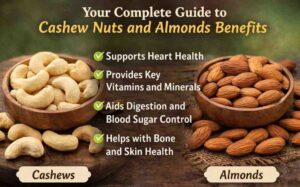
Ten Interesting Facts About Walnuts You Should Know

Introduction
People have appreciated walnuts for hundreds of years because they taste great and are very good for you. Most people know walnuts as a brain-shaped nut packed with healthy fats, but there is far more to this crunchy superfood than meets the eye. Walnuts are really one of a kind since they have a lot of interesting facts about them that go back to ancient times and up to present health research. Here are ten interesting things you probably didn’t know about walnuts.
1. Walnuts Are Among the Oldest Tree Foods Known to Humans
The history of walnuts is extensive and intriguing. They are thought to be among the oldest tree nuts ever collected, having been harvested between 7,000 and 8,000 years ago. Walnuts were so prized by ancient societies that they were trafficked down the Silk Road and consumed by affluent households and members of the royal family. Indeed, in ancient Persia, they were referred to as “Royal Nuts.”. Walnuts’ long history shows how deeply ingrained they are in human diets and traditional medical practices.
2. They Are the Only Nuts Rich in Omega-3 ALA
Even though many nuts are healthy, walnuts are unique because they are the only tree nuts that have a very high level of Omega-3 Alpha-Linolenic Acid (ALA). This omega-3 from plants is very important for brain and heart health. A handful of walnuts, which is about 28 grammes, gives you the daily amount of ALA you need. Omega-3 fats help lower inflammation, keep the heart healthy, and may even make you feel better and think more clearly.
3. Walnuts are Known as “Brain Food” – And There’s a Reason Behind It
The striking similarity between a walnut and the brain is hard to miss. It’s interesting that this visual resemblance also has benefits. Nutrients in walnuts help your brain work better and help you remember things. They have a lot of vitamin E, polyphenols, antioxidants, and good fats. These nutrients keep brain cells safe from oxidative stress. Research shows that eating walnuts regularly may help the brain age in a healthy way and make it easier to think and remember things.
4. A Single Walnut Tree Can Produce Nuts for Over 100 Years
People love walnut trees because they live so long and because their nuts are important. If you take good care of your walnut tree, it can keep giving you nuts for at least one hundred years. These trees are strong, stable, and grow slowly. They don’t start to bear nuts until they have been growing for a few years. Walnut wood is also very valuable for making furniture and crafts because it lasts a long time and has a dark, rich grain.
5. Walnut Skins Are Packed with Antioxidants
The thin, slightly bitter skin on walnuts is usually brushed off or taken off. That being said, the outside layer has more vitamins than the nut itself. The skin of a walnut has about 90% of the phenols, antioxidants, and tannins that the fruit has. These chemicals fight free radicals and are good for your health in general. If they taste a little sour, you could try lightly roasting them to make the taste better without taking off the skin.
6. There Are Several Types of Walnuts, Not Just One
Many people assume all walnuts are the same, but in reality, there are several varieties. The most common types are:
- English (Persian) Walnuts – Mild flavour and widely consumed.
- Black Walnuts – Stronger, more earthy taste with a tough shell.
- White Walnuts (Butternuts) – Rare, with a buttery flavour.
Each variety has its own taste, shell texture, and culinary use. English walnuts are commonly eaten as snacks or used in cooking, while black walnuts are often used in desserts for their bolder flavour.
7. Walnuts Can Support Better Sleep
Naturally occurring chemicals in walnuts may help you sleep better. As a result, they contain melatonin, the hormone that controls when you sleep and wake up. Additionally, they contain magnesium and healthy fats that help the body rest and nerves work properly. Evening snacking on a few walnuts may help you sleep better, especially if you also follow a healthy diet and good sleep habits.
8. They Play a Role in Gut Health
Your gut can also benefit from walnuts, not just your heart and brain. Natural prebiotics feed the good bacteria in your gut. An intact gut microbiome is connected to better digestion, stronger defence, and a steady metabolism. According to studies, eating walnuts on a regular basis can boost good bacteria in the gut, like lactobacillus.
9. Walnuts Have Versatile Culinary Uses Around the World
Walnuts are used in many different types of food around the world because they taste good with both sweet and spicy foods. To eat them, you can roast them, boil them, or grind them into a paste. In India, walnuts are used to make chutney. In the Middle East, they are used to make sauces. In Western food, walnuts are used to make pies. You can eat them on their own as a healthy snack or add them to sweets, smoothies, meals, baked goods, and breakfast bowls.
10. Walnut Oil Is a Beauty and Skin-Friendly Ingredient
Walnuts don’t just contribute to good health—walnut oil has long been used for beauty and skin care. It contains antioxidants, vitamin E, and fatty acids that nourish the skin. Walnut oil may help moisturize skin, reduce dryness, and add a natural glow. It’s also used in hair care to strengthen roots and reduce scalp dryness. However, it should be used in moderation, as it is rich and potent.
Final Thoughts
Walnuts may seem simple, but they have a lot of history, nutrition, and amazing health benefits. Walnuts are a food that is full of nutrients and good for your heart and brain. They can also help you sleep and digest food. People all across the world love walnuts for a reason: they taste great raw, incorporated into meals, or in traditional dishes.



